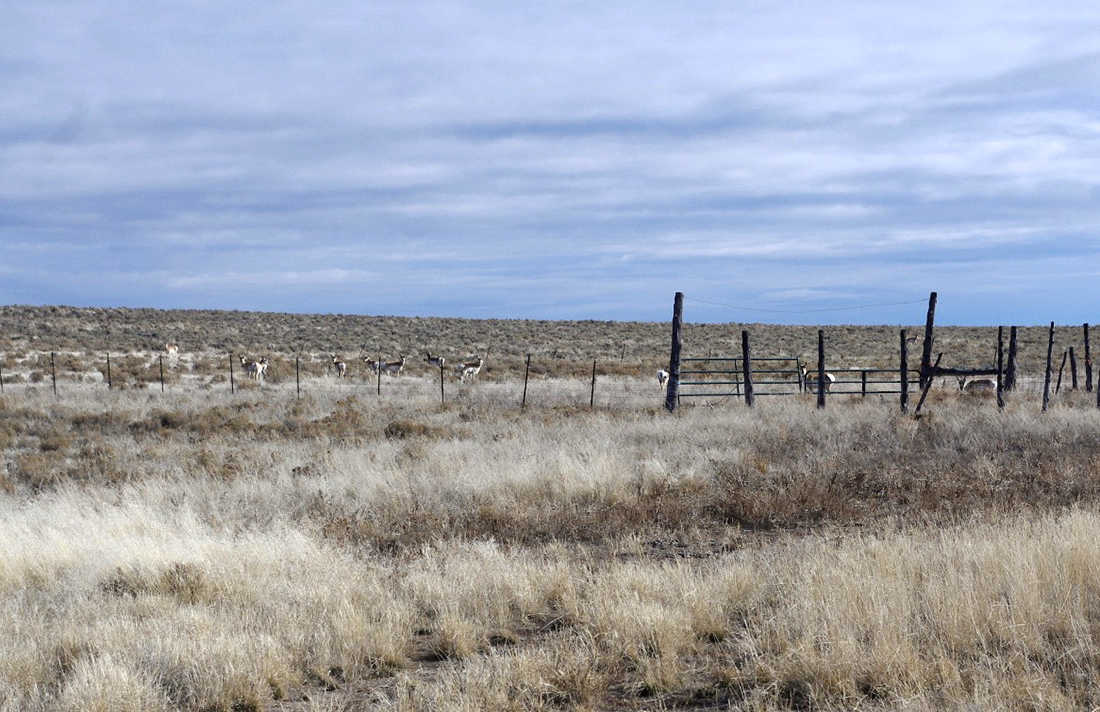The Shaw family found a way to protect a treasured piece of their history in the high desert, while conserving it for years to come.

Dreaming of Land
In 1862, Abraham Lincoln signed the Homestead Act, promising 160 acres to American citizens, or future citizens, willing to work and improve land in the western territories. Over the coming decades, millions of families headed west in pursuit of this new American Dream. Among them was Leon Shaw, a young man of 24, looking to overcome a life of loss.
Leon had lost his mother to childbirth when he was just a young child. In 1897, when Leon was nine years old, his father laid claim to a 160-acre homestead in Lewiston, Idaho. At the age of 16, Leon suffered a double tragedy. He lost his father in an accident, and in a cruel twist, Leon’s young age prevented him from taking ownership of his father’s homestead (the deed passed to a cousin instead).

A Lonely Homestead
Leon was determined to find his own piece of the west. In 1912, he filed a homesteading claim on a 320-acre parcel just outside of Brothers, Oregon. Leon built a modest 13′ by 13′ cabin, plowed off the native grasses, and set about trying to farm the land.
The desert soil proved too poor, and Leon found it hard to make a living. What proved harder still was the isolation. Hungry for human company and ready for a change of scenery, on June 5, 1917, Leon went to Bend to enlist in the Navy and fight in The Great War. He worked as a machinist on the USS Dent, and then spent time in Cuba training at Guantanamo Bay.
Returning home from WWI, Leon found and married his life’s companion, Alma Alsleben, a young woman from Portland. The Brothers homestead proved too remote for the couple, and they opted to remain in Portland.

Leon’s homestead slowly shifted back to wild. Flocks of greater sage-grouse returned. By the 1940s, the cabin was gone. Leon received an apologetic letter from a neighbor in Brothers. Tucked inside was a $10 bill. The neighbor had dismantled Leon’s cabin for wood in order to build a chicken coop.
In the years that followed, Leon’s extended family held a few gatherings and camping trips on the homestead—reconnecting with a cherished piece of Shaw family history.
A Family Conundrum
Leon’s three children inherited the Brothers-Shaw homestead in 1986 upon Alma’s passing. As the years went on, Leonard Shaw, Howard Shaw and Barbara Roberts approached their 80s, then their 90s, and the question of “what to do with the family homestead?” became more pressing. Selling it felt like sacrificing a piece of family history. In the meantime, there was a yearly property tax bill to pay.

A Win-Win
Melissa Shaw, Leon’s granddaughter, began searching for an ideal solution for the homestead. A history buff, Melissa hoped to keep the property preserved as part of the Shaw family heritage. She also hoped to spare her older relatives from the property’s yearly financial burden. And time was ticking. As a financial advisor, she knew that things could get complicated very quickly if her aging father, uncle and aunt were unable to transfer their portion of the deed during their lifetimes.
Melissa’s inquiries eventually led her to Oregon Desert Land Trust. “The Land Trust offered the perfect solution,” she recalled. “We had the land appraised, and the Land Trust took care of everything else. All we had to do was sign a few papers.”
We helped the Shaw’s transfer the title with minimal effort and guided the acquisition process to ensure their generous gift would live on in perpetuity. By gifting the land, Leon’s children claimed a charitable tax deduction for the value of the land—which means Melissa’s father, aunt and uncle will have their personal income taxes reduced for years to come based on their gift.
The Shaw family knew the land was precious and worth saving. Leonard, Howard and Barbara’s donation to the Land Trust conserved a family treasure and allowed them to receive a tax deduction “just as valuable as receiving cash,” Melissa explained. “It was the perfect long-term solution for our family, and it feels good to make a donation that benefits many and keeps the land protected for years to come.”

Caring for Leon's Land
Today, the Brothers-Shaw homestead provides important habitat for wildlife connectivity in the region. Spring water and native plants provide habitat for greater sage-grouse, songbirds and wildlife, such as mule deer and pronghorn antelope. The Land Trust is working with neighboring Hatfield Ranch to maintain sustainable grazing practices as a way to support both the wild and working aspects of Leon’s homestead.
In addition, we are partnering with East Cascades Audubon Society and researchers from Oregon State University to experiment with habitat improvements that we hope will boost the long-term survival of sage-grouse in the region.




